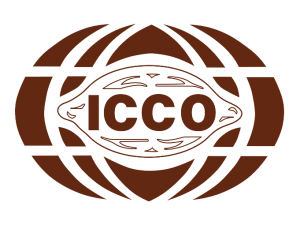![]() 2 April 2012–The International Cocoa Council, meeting in Guayaquil, Ecuador in the last week of March, backed the upcoming World Cocoa Conference, authorized a London workshop on EU legislation on cadmium in cocoa, and made decisions on the issues of headquarters relocation and the selection of a new Executive Director, among several other important matters.
2 April 2012–The International Cocoa Council, meeting in Guayaquil, Ecuador in the last week of March, backed the upcoming World Cocoa Conference, authorized a London workshop on EU legislation on cadmium in cocoa, and made decisions on the issues of headquarters relocation and the selection of a new Executive Director, among several other important matters.
The Council backed plans for the World Cocoa Conference, set for 19-23 November 2012 in Abidjan, Côte d’Ivoire, which is to be launched at an official gathering there on 10 May. The high-level forum, to be hosted by the Ivorian government and opened by President Ouattara, will bring together representatives of all parts of the cocoa value chain to discuss strategies for the future of the trade and industry.
The Council also decided to defer the decision on the relocation of the Headquarters of the Organization to Abidjan until its September 2015 meeting. The decision then would be based on the UN security index level, to be assessed annually across the whole of Côte d’Ivoire.
![]() As a result of this decision, as the lease on the current London Headquarters premises is due to expire in mid-2013, the Executive Director a.i. was instructed to identify urgently temporary offices for the Secretariat in London, with a view to achieving savings for the Organization.
As a result of this decision, as the lease on the current London Headquarters premises is due to expire in mid-2013, the Executive Director a.i. was instructed to identify urgently temporary offices for the Secretariat in London, with a view to achieving savings for the Organization.
The Council took the decision that the election of a new Executive Director should be postponed until a final decision on relocation has been taken in 2015, and to ask the Executive Director a.i., Dr Jean-Marc Anga, to serve as Executive Director from October 2012 until the election of a new Executive Director. The postponement would be without prejudice to the current member nation-endorsed applicants for the position, the Council said, and, if the Council decides to relocate the Headquarters to Abidjan, the recruitment process would be re-opened for new applications.
Responding to the concerns of several producing countries regarding stringent EU legislation on cadmium content in cocoa, the Council authorized the Secretariat to hold a Workshop in London in May to address the issue. There was also general agreement that there was a need to hold seminars in producing countries on issues of importance to members.
The Council also decided to launch a working group on Food Safety, Cocoa Productivity and Quality.
The consuming nation members of the Council elected Rüdiger Ohst of Germany to serve as their spokesman, following the resignation of Ewald Wermuth of the Netherlands, who has now left his London post.
A proposal for a project aimed at improving the marketing competitiveness for Fine or Flavour cocoa was approved for submission to the Common Fund for Commodities.
The Organization’s budget for 2012/13 was capped at a 5% increase, and options for adhering to this limit are to be presented to the Council’s next meeting in London in September.
The well-attended Guayaquil meeting was kindly hosted by the Government of Ecuador, and delegates were welcomed at an official opening in the city’s Oro Verde Hotel by the country’s Vice President Lenin Moreno. The week also saw meetings of the ICCO’s subsidiary bodies the Executive Board and the Consultative Board on the World Cocoa Economy, and a number of social functions.
Presentations delivered at Guayaquil and available for download:
Afreximbank: Transforming Africas Cocoa Economy
CABI and Cocoa
Café-Cacao Reforme Côte d'Ivoire
Forum Sustainable Cocoa
Improving the Market Competitiveness of Fine or Flavour Cocoa Origins
Jack Steijn: Sustainable and Traceable Cocoa
The Crossland Group--Investing in Partnership
